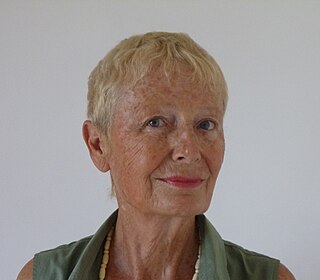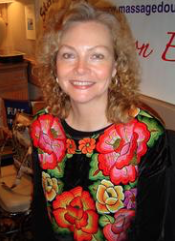Publications
This section may contain an excessive amount of intricate detail that may interest only a particular audience.(April 2020) |
Monographs
- 1982: The Cultural Context for Therapeutic Choice: Obstetrical Care Decisions in a Bariba Community. Dordrecht, Holland: D. Reidel Publishing Company, Inc. Edited Volumes.
- 1989: Maternity, Medicine and Power: Reproductive Decisions in Urban Benin. Berkeley: University of California Press.
Edited volumes
- 1990: (with Thomas Johnson) Medical Anthropology: A Handbook of Theory and Method. Westport, Connecticut: Greenwood Press (Praeger, paperback).
- 1993: (with Caroline Brettell) Gender in Cross-Cultural Perspective. Englewood Cliffs, New Jersey: Prentice-Hall.
- 1996: (with Caroline Brettell) Gender and Health. Englewood Cliffs, New Jersey: Prentice-Hall.
- 1996: (with Thomas Johnson) Medical Anthropology: A Handbook of Theory and Method. Second Ed., Revised. Westport, Connecticut: Greenwood/Praeger.
- 1997: (with Robbie Davis-Floyd) Childbirth and Authoritative Knowledge. Berkeley: University of California Press.
- 1997: (with Caroline Brettell) Gender in Cross-Cultural Perspective, Second Edition, Revised. Englewood Cliffs, New Jersey: Prentice-Hall.
- 1998: (with Nancy Scheper-Hughes) Small Wars: The Cultural Politics of Childhood. Berkeley: University of California Press.
- 2009: (with Caroline Brettell) Gender in Cross-Cultural Perspective, Fifth Edition, Revised. Englewood Cliffs, New Jersey: Prentice-Hall.
- 2010: (with Carole Browner) Reproduction, Globalization, and the State. Duke University Press.
Edited journal issues
- 1992: (with Linda Whiteford) Historical Antecedents of Contemporary Medical Systems in The Caribbean. Social Science and Medicine Special Issue 35(10).
- 1996: (with Robbie Davis-Floyd, guest editors) The Social Production of Authoritative Knowledge in Childbirth. Medical Anthropology Quarterly Special Issue, June.
- 2006: (with Caroline Brettell, guest editors) Migration, Identity, and Citizenship: Anthropological Perspectives. American Behavioral Scientist 50(1). 5
- 2006: (C. Sargent, guest editor) Medical Anthropology in the Muslim World. Medical Anthropology Quarterly Special Issue 20(2)..
Articles
- 1984: Between Death and Shame. Dimensions of Pain in Bariba Culture. Special Issue, Social Science and Medicine 19(12):1299–1304.
- 1984: (with John Marcucci) Aspects of Khmer Medicine Among Refugees in Dallas. Medical Anthropology Quarterly 16:1, pp. 7–9.
- 1984: Obstetrical Choice Among Urban Women in Benin. Social Science and Medicine 20(3):287–292.
- 1985: (with Thomas Johnson and Margot Wilson) Contraceptive Decision-Making. Advances in Contraceptive Delivery Systems. Monograph 1:158–170.
- 1986: (with David Freidel) From Clay to Metal: Culture Change and Container Usage among the Bariba of Northern Benin, West Africa. African Archaeological Review, 177–195.
- 1986: (with Ronald Wetherington and Carol McKinney) Socioeconomic Status and the Incidence of Low Birthweight among the Bariba of Benin. East African Medical Journal: 91–98.
- 1987: (with Nancy Stark) Surgical Birth: Interpretations of Cesarean Delivery among Private Hospital Patients and Nursing Staff. Social Science and Medicine 25(12):1269–76.
- 1988: Witchcraft and Infanticide in Bariba Culture. Ethnology 27(1):79–95.
- 1989: (with Nancy Stark) Childbirth Education and Childbirth Models: Parental Perspectives on Control, Anesthesia, and Technological Intervention in The Birth Process. Medical Anthropology Quarterly 3:1(NS):36-51.
- 1990: (with Joan Rawlins) Factors Influencing Prenatal Care Use among Low-Income Jamaican Women. Research Report Number 14. Washington, D.C.: ICRW.
- 1991: Factors Influencing Prenatal Care among Low-Income Jamaican Women. Human Organization 50(2):179–188.
- 1992: (with Michael Harris) Gender Ideology, Child Care, and Child Health in Jamaica. American Ethnologist 19(3):523–537.
- 1992: (with Joan Rawlins) Transformations in Maternity Care in Jamaica. Social Science and Medicine 35(10):1225–1233.
- 1992: Gender, Reproduction, and Health Care: Comparative Perspectives. Reviews in Anthropology 263–273.
- 2002: Polygamy, Disrupted Reproduction and the State: The Case of Malian Migrants in France. Social Science and Medicine 56(2003):1961–1972.
- 2002: Patient and Physician Explanatory Models for Acute Bronchitis. Journal of Family Practice 51(12):1035–1040.
- 2003: Gender, Body, Meaning: Anthropological Perspectives on Self-Injury and Borderline Personality. Philosophy, Psychiatry, & Psychology 10(1): 25–29.
- 2003: Birth. In Carol and Melvin Ember, eds. Encyclopedia of Medical Anthropology. Plenum.
- 2005: (with Stephanie Larchanche and Samba Yatera) The Evolution of Telecommunications in the Context of Transnational Migration. Paris: Hommes et Migrations 1256:131–140.
- 2005: Counseling Contraception for Malian Migrants in Paris: Global, State, and Personal Politics. Human Organization 64(2):147–156.
- 2006: Liminal Lives: Immigration Status, Gener, and the Construction of Identities among Malian Migrants in Paris. American Behavioral Scientist. 50(1):9–27 (with Stephanie Larchanche-Kim).
- 2006: Reproductive Strategies and Islamic Discourse: Malian Migrants Negotiate Everyday Life in Paris, France. In Medical Anthropology in the Muslim World. Medical Anthropology Quarterly Special Issue 20(1): 31–50.
- 2006: (with Carolyn Smith-Morris) Questioning Our Principles: Anthropological Contributions to Ethical Dilemmas in Clinical Practice. Cambridge Quarterly of Healthcare Ethics 15(2), Spring.
- 2006: Lamenting the Winter of French Fertility. Curare 29 (1), Special Issue. Viola Hoerbst and Sylvie Schuster eds.
- 2007: (with Stephanie Larchanche) The Muslim Body and the Politics of Immigration in France: Popular and Biomedical Representations of Malian Migrant Women. Body and Society, Sage Press. Special Issue 13(3), Islam and the Body.
- 2007: When the Personal is Political: Contested Reproductive Strategies among West African Migrants in France. In Reproductive disruptions: Gender, Technology, and Biopolitics in the New Millennium. Marcia Inhorn, ed. pp. 165–183. Berghahn Books.
- 2009: The Construction of “Cultural Difference” and Its Therapeutic Significance in Immigrant Mental Health Services in France. Culture, Medicine, Psychiatry 33:2–20 (with Stephanie Larchanche).
Book chapters
- 1981: Solitary Confinement: Birth Practices Among the Bariba of Benin. In An Anthropology of Human Birth. Margarita Kay, ed. Philadelphia: F. A. Davis Company.
- 1985: Witches, Merchants and Midwives: Domains of Power Among Bariba Women. In African Healing Strategies. Brian du Toit and Ismail H. Abdalla, eds. Buffalo: Trado-Medic Books, pp. 96–107.
- 1986: Prospects for the Professionalization of Indigenous Midwifery. In The Professionalization of African Medicine. M. Last and G. Chavunduka, eds. London: Manchester University Press for the International African Institute, pp. 137–149.
- 1988: (with John Marcucci) Khmer Prenatal Health Practices and The American Clinical Experience. In Karen Michaelson (ed.), The Culture of Childbirth. New York: Bergin and Garvey Publishing Co.
- 1989: Women's Roles and Women Healers. In Carol McClain (ed.) Women Healers. New Jersey: Rutgers Press.
- 1990: Pain and the Management of Reproduction. In Penn Handwerker (ed.) The Politics of Reproduction, pp. 69–81. Boulder: Westview Press.
- 1990 [1996]: (with Carole Browner) Anthropology and Reproduction. In Thomas Johnson and Carolyn Sargent (eds.) Medical Anthropology: A Handbook of Theory and Method, pp. 215–230. Westport, Connecticut: Greenwood Press.
- 1996: (with Caroline Brettell) Introduction. In Carolyn Sargent and Caroline Brettell (eds.) Gender and Health. pp. 1–29. Englewood Cliff, New Jersey: Prentice Hall.
- 1997: (with Grace Bascope) Ways of Knowing about Birth in Three Cultures. In Robbie David-Floyd and Carolyn Sargent (eds.) Childbirth and Authoritative Knowledge. pp. 183–209. Berkeley: University of California Press.
- 1998: Bad Boys and Good Girls: Gender and Child Health in Jamaica. In Nancy Scheper-Hughes and Carolyn Sargent, eds. Small Wars: The Cultural Politics of Childhood. pp. 202–228. Berkeley: University of California Press.
- 1998: (with Ruth Wilson, Constance Binde, and Kouame Kale) Prospects for Family Planning in Côte d'Ivoire: Ethnographic Contributions to the Development of Culturally Appropriate Population Policy. In Robert Hahn, Ed. Anthropology in Public and International Health, Oxford University press.
- 2005: (with Carole Browner) Donner un Genre a l’Anthropologie Medicale (Engendering Medical Anthropology). In Anthropologie de la Sante et de la Maladie: Perspectives Internationales et Enjeux Contemporains/Anthropology of Health and Illness. International Perspectives and Current Debates. Francine Saillant and Serge Genest, eds. Quebec: Presses Universite Laval; Paris: Anthropos/Economica. English edition forthcoming, Blackwell.
- 2005: (with Dennis Cordell) Islam, Identity and Gender in Daily Life among Malians in France. In L’Islam Politique au Sud du Sahara. Identites, Discours et Enjeux. Muriel Gomez-Perez, ed,. pp. 177–209. Paris: Karthala.
- 2009: Situating Childbirth in the Anthropology of Reproduction (with Lauren Gulbas). In Companion to Medical Anthropology, Pamela Erickson and Merrill Singer, eds. Blackwell.





